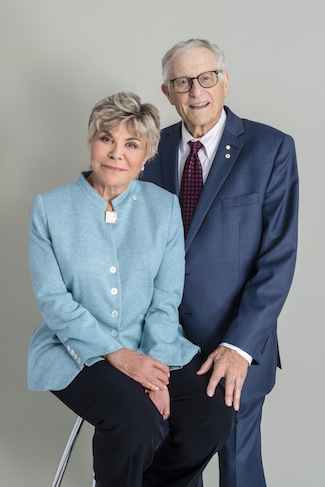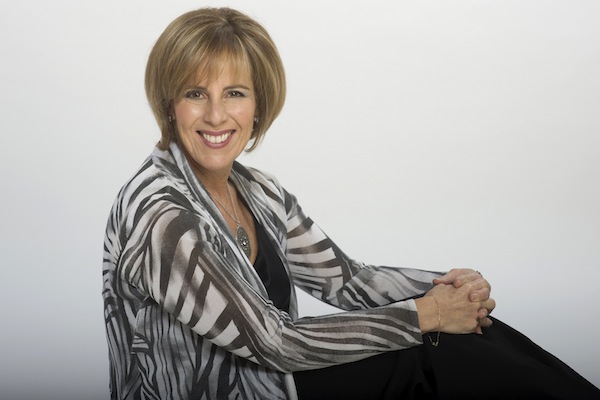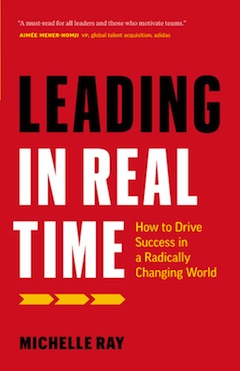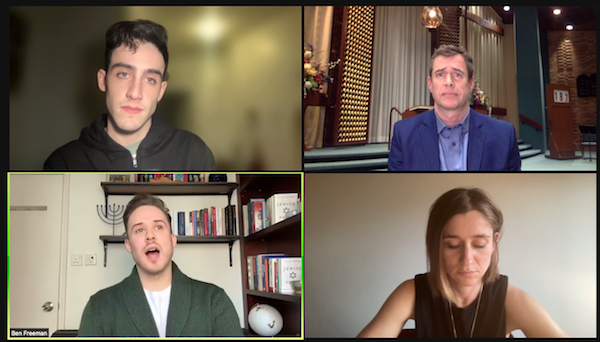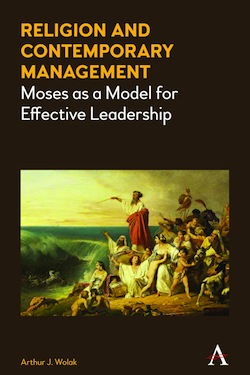There was no question that Zac Abelson (centre) would attend the Excelerate23 Summit in New York City this past March. (photo from Zac Abelson)
“I believe my Excel journey is only just getting started,” Zac Abelson told the Independent. “The last summer and the Excelerate conference have solidified my belief that there are not only bright young leaders in the world that will one day make an incredible impact, but that the Jewish community will forever be one that is strong, defiant, welcoming and passionate.”
Born in South Africa, Abelson moved to Canada with his family when he was 8 years old. “I have now lived in Vancouver for 15-plus years, being part of the Chabad Jewish community while growing up in South Surrey,” he said. “I learned my bar mitzvah on a tape recorded by my grandfather with the Chabad rabbi and went back to do my bar mitzvah with my grandfather in South Africa.”
Last year, Abelson was one of 60 international students chosen for a Birthright Israel Excel summer internship in Israel. One of the highlights of working with Deloitte, the company with which he interned, was “getting to learn and understand how the Israeli culture conducts business and truly see the impact they have on the world without most people knowing,” said Abelson.
Birthright Israel Excel, which started in 2011, is described as a business fellowship that offers select students an internship in Israel, followed by membership in a “community of peers focused on professional development, personal growth, Israel engagement and philanthropy.”
The most exciting part about being selected for the program, said Abelson, was the people.
“Excel selects not only the best and brightest but also the most genuine and caring individuals,” he said. “Being able to spend 10 weeks in a tight-knit community made every moment a life-changing experience and every memory one I will never forget. Mix those people with all that Israel has to offer and you have a recipe for an incredible summer.”
It was “an adjustment to be surrounded by so many talented people from the best schools in the world,” he acknowledged. “One can see it as daunting, but I chose to see it as an opportunity to learn and mix with the people who will push me to be a better version of myself.”
Abelson has just completed his studies at the University of British Columbia Sauder School of Business, graduating with a bachelor of commerce. “I now work full-time in real estate development,” he said, “helping shape and grow diverse and sustainable communities.”
In March, Abelson was one of more than 300 Birthright Israel Excel fellows from around the world who gathered in New York City for the Excelerate23 Summit.
“Having had such an incredible time with the Birthright Excel community this past summer in Israel, attending the Excelerate Summit in New York City was no question,” he said. “The opportunity to again be surrounded by such incredible Jewish leaders and innovators is rare and one I wanted to take full advantage of.”
Throughout the March 24-26 weekend, attendees participated in networking, industry panels and discussions about topics such as business development, Jewish identity and Israel engagement. The summit also held workshops on combating antisemitism.
Among the events Abelson attended was one entitled Scrappy to Scaled: How Entrepreneurs Turned Startups into Sustained Multi-Figure Operations.
“This was a fantastic session where we truly got to hear the grit required to turn an idea into a reality,” he said. “What I found fascinating was listening to Nathan Resnick – seeing how, rather than conforming to the expectation of what businesspeople and investors would look for, he allows his true light and personality to shine through, ultimately getting investments in the person over the product.
“Additionally, listing to [activist and former NBA player] Enes Kanter Freedom speak about his journey from hatred of the Jewish people to now embracing the community was eye-opening. It was unbelievable to see how his deep passion for acceptance and the international community drives him every day despite all that he has had to sacrifice. It also puts into perspective the sad reality of how stuck in the past the world still is and how unwilling to speak on important issues many sporting organizations still are.”
When asked what three things he would recommend about the Excel program, Abelson said, “One, you don’t know the value of an international network until you truly have one. Excel has allowed me to since travel the world and feel comfortable knowing there will always be an Excel fellow somewhere close by.
“Two, the feeling of connecting with like-minded, passionate and bright Jewish business leaders … will fill you with joy and hope for the future of both Israel and the world.
“Three, the Excel experience is more than just adding the internship to your resumé. It’s an experience of a lifetime that everyone in interviews will be intrigued with and ask you more about. Few in the workplace have such a wonderful story to tell.”
For more information about the programs offered, visit birthrightisraelexcel.com.


